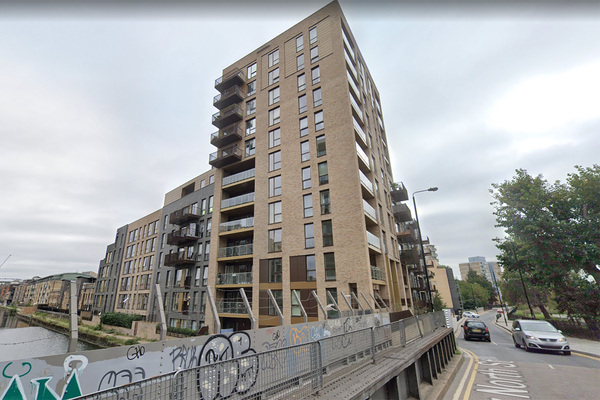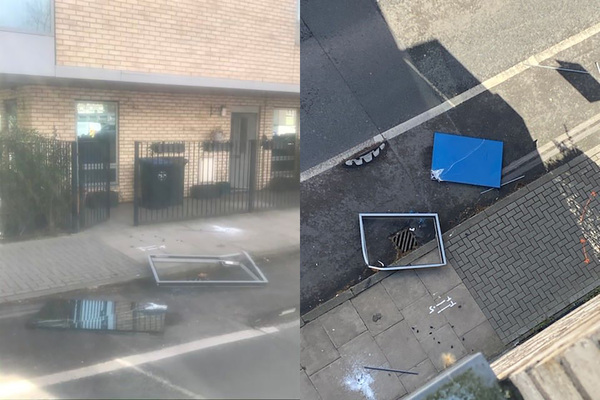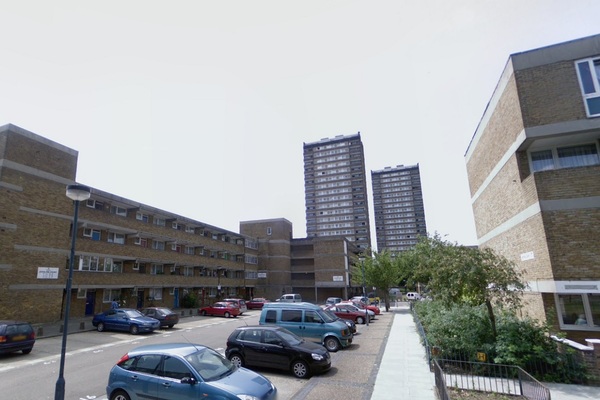Housing association criticised after tenants overcharged for low-carbon heating
A G15 landlord has been criticised by tenants and campaigners after residents in one of its blocks were hit with huge costs for a new low-carbon heating system that left some having to move temporarily out of their homes.

Peabody tenants living on the Phoenix Works Estate in east London were forced to pay up to £250 per month for heating after moving into their new build homes, which Peabody leases from the building’s freeholder, in late 2019.
Their homes are heated using a heat network, which is a form of heating where heat is produced centrally and distributed to different households via pipes.
According to an investigation published by the campaigning group Fuel Poverty Action, tenants on the Phoenix Works Estate were being charged for their heating at a rate that was four times the national average for gas.
The costs became so expensive that some tenants had to stop using their heating entirely, while some were forced to move back and forth between their relatives’ homes during the first COVID-19 lockdown.
When the tenants complained, Peabody told them that it did not set the heat tariff but agreed to lobby the building’s manager, Kinleigh Folkard & Hayward (KFH), and heat provider on the tenants’ behalf.
Peabody admitted to tenants that it failed to sign a heat metering agreement with the building’s owners before moving tenants into the properties at Phoenix Works.
A section of the residents’ tenancy agreement with Peabody titled ‘Heating/hot water charges and how they may vary’ was left blank.
In February 2020 the tenants’ heat tariff was reduced by almost half and residents received a rebate for what they were overcharged in January this year, over a year after the problems were first raised.
However, tenants are calling for further compensation, for example for those who were forced to move out of their home when they could not afford to pay for heating.
Other demands include a written contract that ensures future heating charges do no more than cover reasonable costs, alongside a commitment from Peabody to benchmark heat charges against the resources of tenants.
Forid Hussain, a tenant at Phoenix Works, said: “Why did Peabody not check the flat was safe and warm to live in before moving residents in? This is something I would like to know and be compensated for.”
Ruth London, a founding member of Fuel Poverty Action, added: “It was [Peabody’s] job as a social landlord to secure robust heat contracts on good terms, but they secured nothing at all, and didn’t even inform prospective tenants. Heating is not an optional extra in housing. It is an essential like the roof. Staff have expressed sympathy but always claimed Peabody was powerless. In fact there is plenty they can do.
“We hope that now they will act to ensure that people are fully compensated for the nightmare they have been through, and will meet tenants’ demands for a new accountable system.”
Peabody said that it was not responsible for the metering or billing but said it had always worked to get the best deal for its residents.
Heat networks form a key part of the government’s plan to transition housing towards low-carbon heating systems ahead of its target for the UK to become net zero by 2050.
While heat networks can be a cheaper and more sustainable alternative to gas, campaigners have highlighted a number of issues with such systems, including the fact that users cannot switch providers and the fact that the industry is largely unregulated.
A recent report by the Housing Ombudsman found residents living in buildings with heat networks faced problems including a lack of information around pricing and weak contractual agreements.
A Peabody spokesperson said: “Our team has worked very hard over a long period to support residents in getting a better energy tariff and securing refunds for them. We are not the heat provider or responsible for metering and billing at Phoenix Works but have consistently worked on our residents’ behalf to get them a better deal.
“As a result the tariff reduced by almost half over a year ago – in February 2020. Some refunds were issued at the beginning of this year by the heat provider and we’re continuing to work with them to see what more can be done. We’re also making further enquiries of the freeholder’s managing agent to make sure people living in our homes are not being incorrectly charged for anything.
“We’re committed to tackling fuel poverty and our sustainability team will always take these issues up on behalf of our residents. They are involved in discussions with government on how the heat network industry should be regulated in the future and are also reviewing our processes to make sure we fully investigate and agree heating tariffs and potential energy costs for all new homes – including where we buy them from private developers – before people move in. This will prevent issues like this from recurring in the future.”
Richard Benson, managing director of KFH Block and Portfolio Management, said: “The gas at Phoenix Works was arranged during the build by the then-management company, with an estimation for the communal system efficiency, resulting in the end user tariff being set at a 31p per day standing charge and 13.77p/KWH.
“Our understanding is the initial heat tariff rates at Phoenix Works were based on a number of factors in line with the Heat Network (Metering and Billing) Regulations.
“While the initial heat tariff was agreed prior to KFH taking handover of the development, we were provided with the billing agent data upon which the initial heat tariff appears to have been set.
“Following the building completion and the initial full occupancy period, a complete review of the heat charges was undertaken during February 2020 and approved by our client, Phoenix House Broomfield Street Management Company.
“The review was based on usage data obtained between 31 October 2018 and 31 October 2019, which indicated the plant efficiency being closer to 45%, rather than the initial estimate of 37.5%.
“In line with the renewal of the gas supply agreement, the heat tariff was also reviewed in September 2020, which resulted in a further reduction in the heat tariff rate. In line with our standard practice, the heat tariff at Phoenix Works will continue to be reviewed annually.
“It is not a standard domestic gas supply as residents at Phoenix Works benefit from a communal heat network, in line with the government’s green energy initiative. Any comparisons on prices achieved must be done so in consideration of the network installed. It is not viable to compare UK average gas costs with communal heat tariffs.”
Sign up for our asset management newsletter
Already have an account? Click here to manage your newsletters
Unlock Net Zero
Find out more on the practical reality of the transition to a net zero future at Unlock Net Zero.
Unlock Net Zero seeks to inform, educate, and connect people and organisations involved in adopting a net zero approach, identifying the technologies, infrastructure and behaviour change required.












